
Help us create more content like this
Already a member? Sign in.
Sign up to our newsletter to get the latest updates and events from the leading Afro-Diaspora publisher straight to your inbox.
 December 21, 2022 at 05:00am
Top 5 African Countries to Invest In 2023
by Ben Ebuka
December 21, 2022 at 05:00am
Top 5 African Countries to Invest In 2023
by Ben Ebuka
 December 20, 2022 at 06:00am
Uncovering the invisible wealth of Afro-Brazilians: Four self made millionaires to know
by Bruno Goes
December 20, 2022 at 06:00am
Uncovering the invisible wealth of Afro-Brazilians: Four self made millionaires to know
by Bruno Goes
 December 16, 2022 at 08:50am
Daughter of Haitian immigrants Claudine Gay becomes first Black president of Harvard
by Abu Mubarik
December 16, 2022 at 08:50am
Daughter of Haitian immigrants Claudine Gay becomes first Black president of Harvard
by Abu Mubarik
 December 15, 2022 at 03:29pm
Five inspiring lessons from the life of Mansa Musa, the wealthiest man in history
by Bruno Goes
December 15, 2022 at 03:29pm
Five inspiring lessons from the life of Mansa Musa, the wealthiest man in history
by Bruno Goes
 December 15, 2022 at 10:17am
The mystery of the “land of twins,” the city with the highest twin births in Africa
by Adeola Adegunwa
December 15, 2022 at 10:17am
The mystery of the “land of twins,” the city with the highest twin births in Africa
by Adeola Adegunwa
 February 21, 2026 at 06:00am
Woman makes history after she filed a discrimination lawsuit for endometriosis and won
by Mildred Europa Taylor
February 21, 2026 at 06:00am
Woman makes history after she filed a discrimination lawsuit for endometriosis and won
by Mildred Europa Taylor
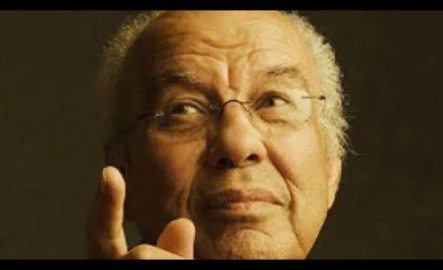 February 20, 2026 at 08:28pm
Remembering Norman C. Francis, the longtime Xavier University president who counseled Jesse Jackson
by Mildred Europa Taylor
February 20, 2026 at 08:28pm
Remembering Norman C. Francis, the longtime Xavier University president who counseled Jesse Jackson
by Mildred Europa Taylor
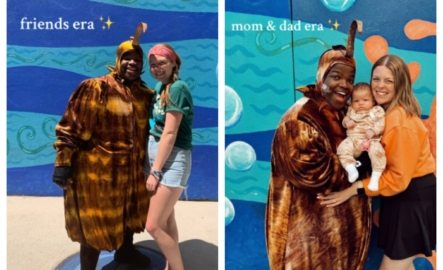 February 20, 2026 at 07:51pm
Woman shares how mistakenly tagging the wrong Disney performer on social media led to her marriage
by Dollita Okine
February 20, 2026 at 07:51pm
Woman shares how mistakenly tagging the wrong Disney performer on social media led to her marriage
by Dollita Okine
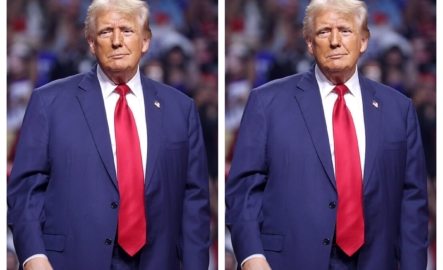 February 20, 2026 at 06:19pm
Supreme Court blocks Trump tariff plan, President signals immediate countermove
by Kofi Oppong Kyekyeku
February 20, 2026 at 06:19pm
Supreme Court blocks Trump tariff plan, President signals immediate countermove
by Kofi Oppong Kyekyeku
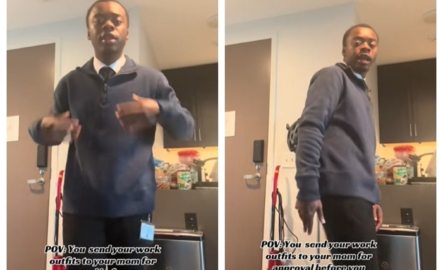 February 20, 2026 at 04:31pm
21-year-old goes viral after showing the world his personal stylist — his mother
by Dollita Okine
February 20, 2026 at 04:31pm
21-year-old goes viral after showing the world his personal stylist — his mother
by Dollita Okine
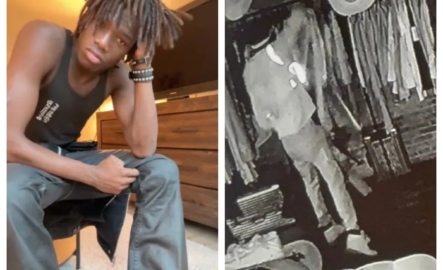 February 20, 2026 at 03:10pm
Model allegedly steals $1M in designer goods in Hollywood-style SoHo heist, released without bail
by Dollita Okine
February 20, 2026 at 03:10pm
Model allegedly steals $1M in designer goods in Hollywood-style SoHo heist, released without bail
by Dollita Okine
 February 20, 2026 at 01:58pm
Northwest Nigeria hit by coordinated assault as 33 are killed
by Kofi Oppong Kyekyeku
February 20, 2026 at 01:58pm
Northwest Nigeria hit by coordinated assault as 33 are killed
by Kofi Oppong Kyekyeku
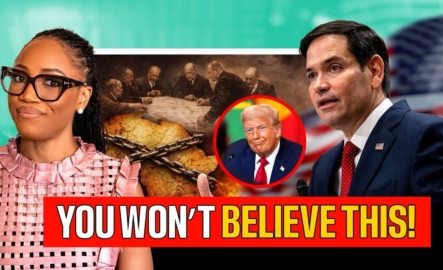 February 20, 2026 at 12:21pm
Did Marco Rubio Just Signaled a New Scramble for Africa?
by Malise Omoloye
February 20, 2026 at 12:21pm
Did Marco Rubio Just Signaled a New Scramble for Africa?
by Malise Omoloye
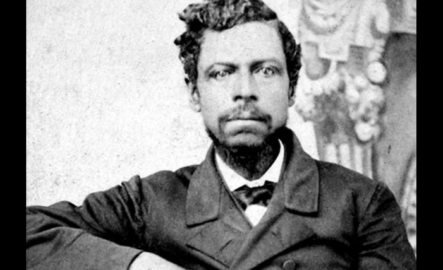 February 20, 2026 at 12:00pm
The popular Ivy Greek Natural Area is home to land once purchased by a formerly enslaved man
by Mildred Europa Taylor
February 20, 2026 at 12:00pm
The popular Ivy Greek Natural Area is home to land once purchased by a formerly enslaved man
by Mildred Europa Taylor
 February 20, 2026 at 10:00am
Druski says he contacted Jaxon Smith-Njigba after causing a stir for mispronouncing his name at NFL Honors
by Francis Akhalbey
February 20, 2026 at 10:00am
Druski says he contacted Jaxon Smith-Njigba after causing a stir for mispronouncing his name at NFL Honors
by Francis Akhalbey
 February 20, 2026 at 08:00am
Ray J says his heart monitor was stolen at his concert, offers cash reward for return
by Francis Akhalbey
February 20, 2026 at 08:00am
Ray J says his heart monitor was stolen at his concert, offers cash reward for return
by Francis Akhalbey
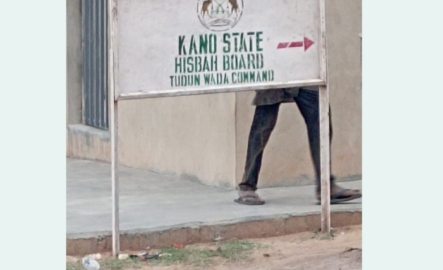 February 20, 2026 at 07:30am
Nigeria: Nine Muslims arrested by Islamic police for eating during Ramadan fast
by Francis Akhalbey
February 20, 2026 at 07:30am
Nigeria: Nine Muslims arrested by Islamic police for eating during Ramadan fast
by Francis Akhalbey
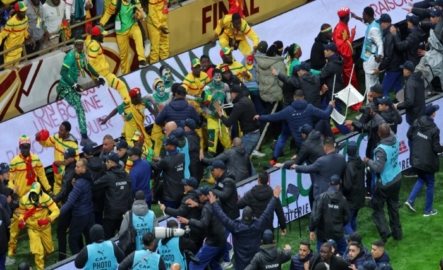 February 20, 2026 at 06:56am
Moroccan court jails 19 fans after AFCON final chaos between Senegal and Morocco
by Kofi Oppong Kyekyeku
February 20, 2026 at 06:56am
Moroccan court jails 19 fans after AFCON final chaos between Senegal and Morocco
by Kofi Oppong Kyekyeku
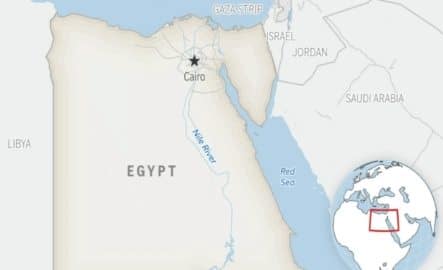 February 20, 2026 at 05:58am
Deadly collision on 30 June Axis leaves 18 dead in Egypt
by Kofi Oppong Kyekyeku
February 20, 2026 at 05:58am
Deadly collision on 30 June Axis leaves 18 dead in Egypt
by Kofi Oppong Kyekyeku
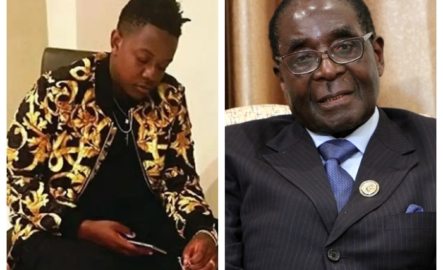 February 20, 2026 at 05:00am
Bellarmine: Son of Robert Mugabe arrested in South Africa over attempted murder allegations
by Francis Akhalbey
February 20, 2026 at 05:00am
Bellarmine: Son of Robert Mugabe arrested in South Africa over attempted murder allegations
by Francis Akhalbey
 February 19, 2026 at 07:36pm
Winnie Harlow on the times she got rejected before raising over $6M for her skincare brand
by Dollita Okine
February 19, 2026 at 07:36pm
Winnie Harlow on the times she got rejected before raising over $6M for her skincare brand
by Dollita Okine
 February 19, 2026 at 07:14pm
Judge blasts Trump administration over ‘terror’ in immigration enforcement
by Kofi Oppong Kyekyeku
February 19, 2026 at 07:14pm
Judge blasts Trump administration over ‘terror’ in immigration enforcement
by Kofi Oppong Kyekyeku
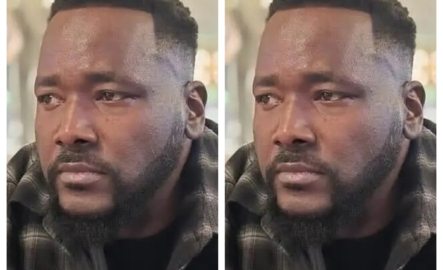 February 19, 2026 at 06:27pm
‘The Blind Side’ actor Quinton Aaron shares update after spinal stroke as family fights ‘spiritual wife’
by Dollita Okine
February 19, 2026 at 06:27pm
‘The Blind Side’ actor Quinton Aaron shares update after spinal stroke as family fights ‘spiritual wife’
by Dollita Okine
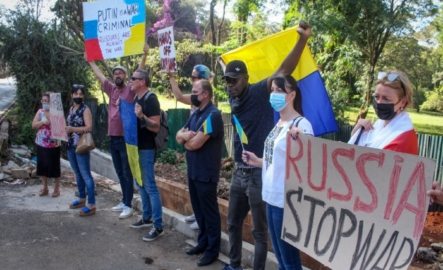 February 19, 2026 at 01:52pm
Report claims 1,000 Kenyans lured with job promises, deployed to Russia’s war in Ukraine
by Kofi Oppong Kyekyeku
February 19, 2026 at 01:52pm
Report claims 1,000 Kenyans lured with job promises, deployed to Russia’s war in Ukraine
by Kofi Oppong Kyekyeku
 February 19, 2026 at 01:52pm
Meet Dangote’s three daughters appointed to key roles in business empire
by Mildred Europa Taylor
February 19, 2026 at 01:52pm
Meet Dangote’s three daughters appointed to key roles in business empire
by Mildred Europa Taylor

Already a member? Sign in.

Already a member? Sign in.


Sign up to our newsletter to get the latest updates and events from the leading Afro-Diaspora publisher straight to your inbox, plus our curated weekly brief with top stories across our platforms.
No, Thank You